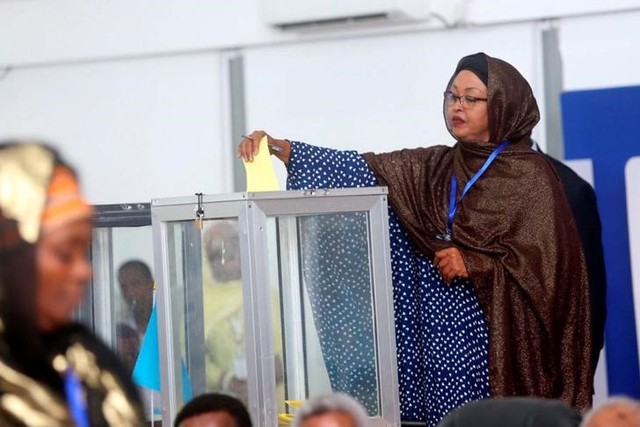President should have power to hire and fire PM in new constitution-HIPS


The President should have the constitutional power to hire and fire the Prime Minister, a Mogadishu based policy think tank has said while strongly calling on the new parliament and executive to ensure a more inclusive approach in the constitutional review process.
In a report released this week, Heritage Institute for Policy Studies (HIPS) recommends a return to the 1960 constitution which gave powers the president to hire and sack the prime minister noting this would ensure the prime minister ‘maintains the dual confidence of the president and the parliament’.
The president should therefore be elected by the people, the report Somalia’s Parliament should produce constitution for and by the people, says.
According to the current constitutional dispensation, the President can only hire the Prime Minister upon approval by parliament but cannot dismiss him or her. Only parliament can send home the president.
Somalia-centric process
The government on behalf of the Somalia people must demonstrate ownership of the constitutional review process by funding it, HIPS urges. “The Somali ownership of the constitution making process should start with the Somali government taking responsibility for funding the constitutional review process.”
The HIPS report also identifies areas which require more public discourse and participation observing the final document which shall be subjected to a plebiscite must reflect the views and aspirations of Somali people.
Key among the issues that need clarification is the distribution of powers, responsibilities and resources between the Federal Government and Federal Member States (FMS).
Autonomous FMS
The Parliamentary Oversight Committee in its final draft submitted to the 9th parliament singled out 24 areas which fall under the province of the Federal Government and seven for the FMS.
However, the report notes, the FMS operate almost autonomously from the Federal Government arrogating themselves powers and resources which are otherwise exclusively for the Federal Government.
“As it stands now, some of the regional states, if not all, operate as almost independent states. They have their own government ministries, parliamentarians, and flags. They run their own internal affairs. They deal with neighboring countries and the international community through their own representatives,” HIPS says.
Upper House
The character and function of the Upper House must also be set out clearly, the report says. The new senate was elected by FMS state assemblies but candidates drawn from clans within the states. This, HIPS says does not make a difference in terms of representation between the Lower and Upper House.
It proposes therefore that the Somaliland model in relation to the Upper and Lower Houses of Parliament be adopted. Somaliland’s House of the Representatives (Lower House) represents the citizens while the House of Elders (Senate) represents the clans.
However, the report notes the interests of the small clans, should be safeguarded.
The functions, powers and responsibilities of the senate should be limited as is the case for Ghana and Botswana to minimize or safeguard duplication & conflict, the report recommends.